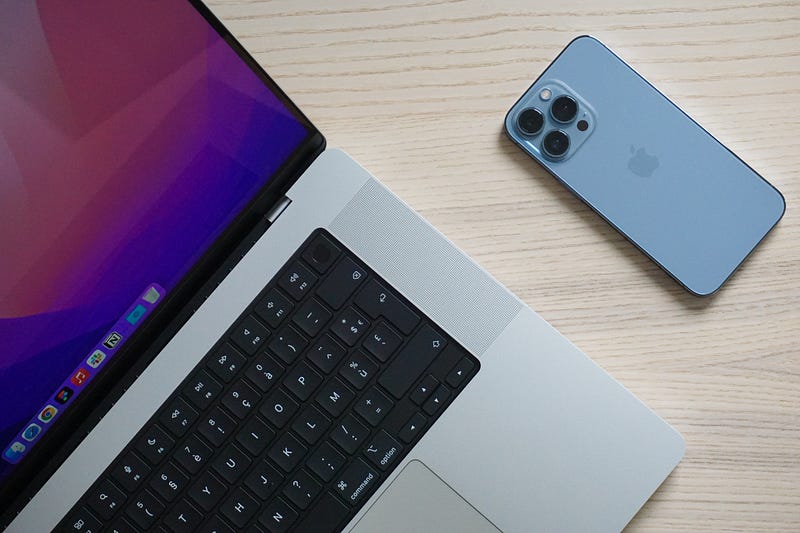What Does “Pro” Truly Signify for Apple? A Deep Dive
Written on
Understanding Apple's "Pro" Designation
What does "Pro" really mean in Apple's context? Is it simply a marketing gimmick, or does it hold genuine significance? Let's delve into this topic together.

Apple's marketing strategy is widely admired and serves as a model for many in the industry. However, one area where they seem to falter is in the naming of their products, particularly those aimed at professionals. This has led to a divide in opinions regarding the term "Pro."
On one side, some argue that "Pro" has nothing to do with professionalism and is merely a clever marketing tactic. Others, while unsure of the term's meaning, propose that Apple's Pro devices represent more advanced versions of their standard counterparts. However, this doesn't necessarily imply they are designed for professional use.
The Traditional Understanding of Professional Equipment
When considering what constitutes a "pro" device, I often think about cameras—a technology familiar to many, including my own family. Historically, cameras have been categorized into amateur, semi-professional, and professional levels. This classification was not only evident in their pricing but also in their capabilities and sensor sizes, especially with the advent of digital photography. The more features a camera offered, the more likely it was to be labeled as "professional."
To this day, this principle holds true. A simple point-and-shoot camera or a $400 micro-four-thirds model typically won't qualify as professional equipment. Most professionals start with cameras priced around $1,000, and when adding lenses and accessories, the total cost can escalate significantly. Interestingly, professionals sometimes use unconventional tools, such as a Holga camera, which is essentially a pinhole camera made from plastic. This illustrates that professionalism extends beyond just the tools one uses.
Apple's Interpretation of "Pro"
This brings us back to Apple and its interpretation of the "Pro" label. Upon examining Apple's Pro devices, one commonality stands out: they all possess additional features compared to standard models. At first glance, this might suggest that Apple's usage of "Pro" is justified.
However, the situation becomes more complex. Apple does not strictly equate "Pro" with "professional." The interpretation of professionalism is inherently contextual. For example, consider a software engineering director. While they are certainly a professional, their role typically does not demand more than a MacBook Air. In fact, about 95% of managers may find a MacBook Air sufficient, benefiting from its portability as they navigate between meetings.
Similarly, take a world-renowned cellist. Although they are undoubtedly a professional, it is difficult to envision a scenario where they would require a MacBook Pro or even an iPad Pro for their work. Instead, they might find the AirPods Pro valuable due to their noise-canceling capabilities. Here’s where the naming convention becomes muddled: the AirPods Max, which many musicians consider professional-grade, are not labeled as "Pro." In contrast, the Max versions of iPhones primarily signify larger sizes, while the Max headphones represent a superior category altogether.
This inconsistency prompts a critical question: what does "Pro" signify for Apple?
The Evolution of Apple's "Pro" Designation
It appears Apple did not intend to create such confusion in its product lineup. Over time, as the company has consistently released faster and more powerful devices, the distinction between models has become increasingly blurred. Today's Air models are more powerful than the Pro models from just a few years ago, complicating the narrative around what constitutes "Pro."
Let’s not forget that Apple, despite its immense success, is not without flaws. While I consider myself a fan, no company—especially one as large as Apple—is infallible. The larger the organization, the more likely it is for details to slip through the cracks, even in their otherwise exemplary marketing efforts.
Ultimately, one consensus seems to emerge: every Pro device Apple offers comes with features that exceed those of their standard versions. It is up to professionals to determine whether these additional capabilities justify the higher price tag. After all, one can effectively perform managerial tasks using an iPhone SE or a three-year-old MacBook Air.
While Apple's Pro devices may not make you a professional, they can certainly serve as valuable tools in your daily work. The true meaning of "Pro" within Apple's ecosystem remains unclear, but perhaps it doesn't matter as long as we view these devices as suitable for professional use, with the "Pro" label functioning merely as a marker for enhanced features. Ultimately, the decision on how much of that extra capability you require in your workflow rests with you. And maybe—just maybe—you shouldn't invest in a Pro device if you only seek to enhance your own image.
Continuity Camera — Apple’s Answer To Bad Webcams?
An equally ingenious and amusing solution from the desks of Apple engineers...
Apple’s New MacBook Designs Have One Major Flaw
I believe it’s a mistake, and it’s not the first time Apple has made this error...
Apple Silicon M2 — The Fine Print You Might Have Missed
We can all agree that WWDC 2022 was impressive, but the devil is in the details...
The first video titled "iPhone 16 Pro & 16 Pro Max Review! Battery Life Is Beast, But Should You Upgrade?" offers insights into the latest models' battery performance and whether an upgrade is advisable.
The second video titled "iPad Pro M2: What Does 'Pro' Even Mean?" explores the meaning and implications of the "Pro" designation in Apple's iPad lineup.
Attila Vago — A software engineer dedicated to enhancing the world one line of code at a time. A lifelong geek, passionate about web accessibility, Lego, and vinyl records, and a fan of craft beer!